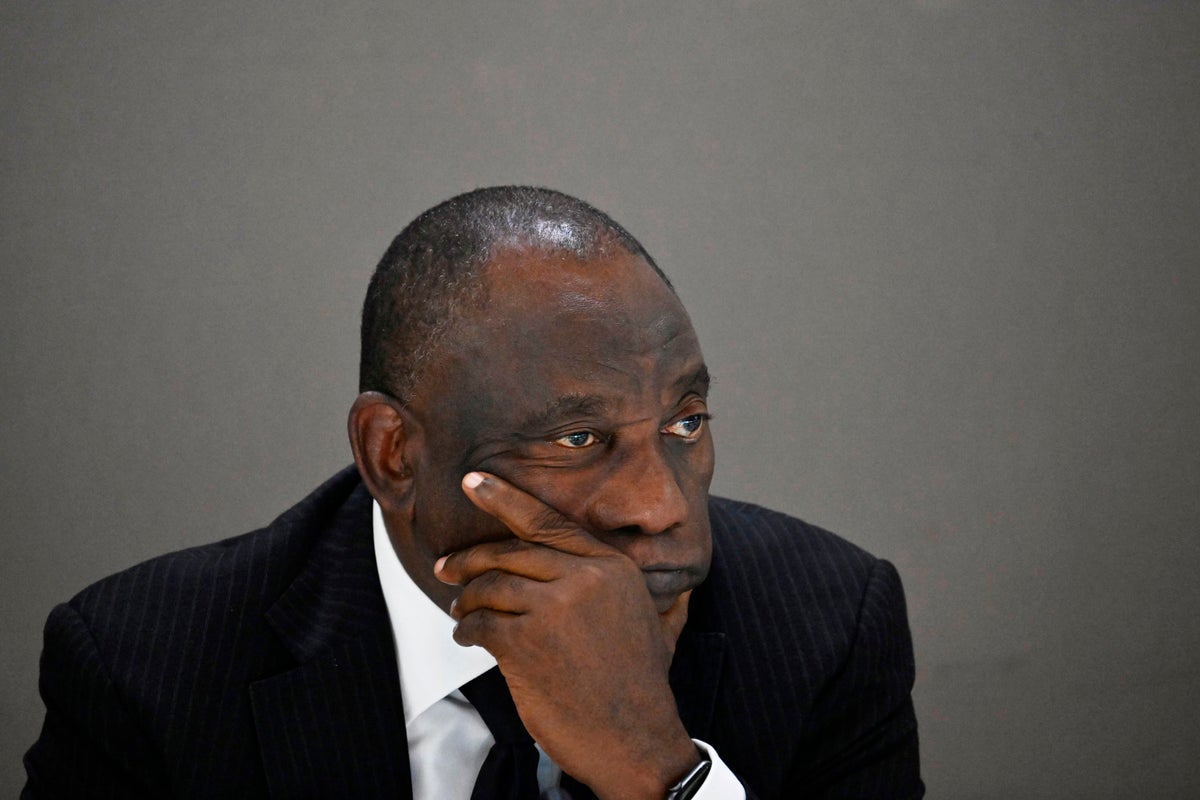
South African President Cyril Ramaphosa was cleared of wrongdoing Friday by a public watchdog over a scandal involving the theft of more than half a million dollars in U.S. currency that had been stashed in a sofa at his game farm.
Acting Public Protector Kholeka Gcaleka, whose office holds politicans to account, said Ramaphosa did not violate the ethics code for members of South Africa's executive over the incident, which happened in 2020 but was only revealed publicly last year.
The scandal was seen as the biggest callenge to Ramaphosa's reputation and his leadership of Africa's most developed economy. There is still an ongoing criminal investigation into the incident.
Ramaphosa said $580,000 in cash was stolen. Gcaleka said it was not part of her investigation to confirm how much money was involved and didn't give a figure.
Ramaphosa, 70, was accused of not reporting the theft properly to police in an attempt to cover up the existence of the large sum of cash hidden in furniture at his farm. He said he reported it to the head of his security detail, which is part of the South African Police Services.
In clearing him in her final report on the scandal, Gcaleka accepted that Ramaphosa had reported the crime to the head of his personal protection unit and the contention that he had acted improperly was “not supported.”
Gcaleka also said there was no evidence that Ramaphosa was guilty of a conflict of interest regarding any income from the business operations of his Phala Phala game farm in the northern Limpopo province.
"The allegation that the president improperly and in violation of the provisions of the executive code exposed him(self) to a risk of a conflict between his constitutional duties and obligations and his private interests arising from his alleged paid work at Phala Phala farm is not substantiated,” Gcaleka said at a news conference.
The investigation of Ramaphosa was prompted by a complaint made to the Public Protector's office by the opposition African Transformation Movement Party.
The incident came to light last June when the former head of South Africa's intelligence service, Arthur Fraser, opened a case with police accusing Ramaphosa of hiding as much as $4 million at his farm before it was stolen. Fraser accused the president of money laundering and breaching tax and foreign currency control laws, and attempting to cover up the theft of the cash in an attempt to hide its existence.
Ramaphosa denied any wrongdoing and also disputed the amount of money Fraser claimed was stolen.
Fraser also made other startling claims that Ramaphosa ordered the head of his personal protection unit, Maj. Gen. Wally Rhoode, to undertake a clandestine investigation to recover the money, including the capture and torturing of some of the suspects and later bribing them to keep the incident secret.
Public Protector Gcaleka dispelled those allegations, or even that Ramaphosa knew of details of the investigation by Rhoode.
“No evidence could be found to prove that the president was aware of the investigation of the crime by Gen. Rhoode,” she said.
The scandal had seriously dented Ramaphosa’s image as a leader intent on cleaning up South Africa's corruption-tainted government and his ruling African National Congress party.
Questions remain, though, over why such a large amount of money was stuffed into a sofa at the farm. Ramaphosa has not explained why the cash was in the sofa but has said that it was the proceeds from the sale of buffaloes to a Sudanese businessman.
The scandal led to opposition parties calling for Ramaphosa's resignation but they failed in an attempt to start impeachment proceedings against him as his ANC party maintains a majority in the 400-member Parliament.
In December, a report by a parliamentary panel looking into the matter found that Ramaphosa may have broken anti-corruption laws. According to that report, Ramaphosa said the money stolen amounted to $580,000.
The report also questioned Ramaphosa’s explanation that the money was from the sale of buffaloes as it found the animals remained at the farm more than two years later.
However, the ANC rejected the findings of the report and used its majority in Parliament to block attempts to start impeachment proceedings, paving the way for Ramaphosa to be re-elected as the party’s leader. He is expected to seek a second and final five-year term in elections next year.







